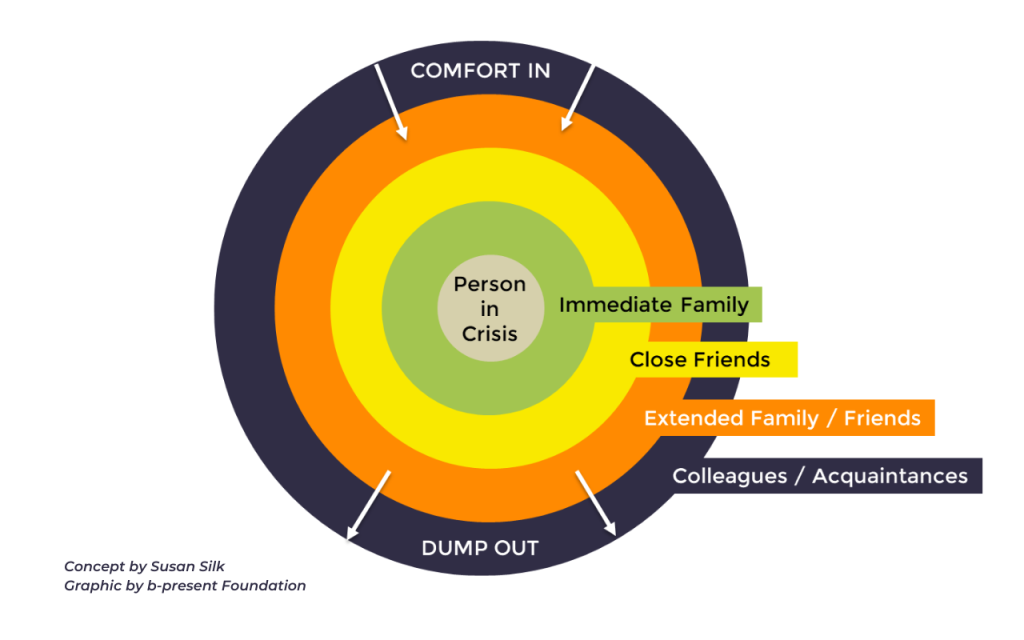The value of strong, empathetic communication cannot be overstated. At b-present, we recognize the pivotal role that effective communication plays not only in everyday interactions but especially within communities supporting young adults facing cancer. In this blog, we’ll discuss understanding diverse communication styles and adapting these insights to strengthen the connections within cancer support networks, ensuring a more nurturing and supportive environment for everyone involved.
Understanding Communication Styles
Communication is the foundation of human connection, shaping our relationships and interactions. There are four primary communication styles:
Assertive: Marked by clarity, respect, and confidence, this style is both direct and considerate of others’ needs.
Aggressive: Often overpowering and disrespectful, this style can lead to conflicts and misunderstandings.
Passive: Characterized by difficulty in expressing needs or opinions, leading to resentment and stress.
Passive-Aggressive: This style veils dissatisfaction through indirect expression, leading to confusion and unresolved issues.
Recognizing and understanding these styles can lead to healthier, more effective interactions, particularly within the sensitive context of a cancer support network.
Each style comes with its attributes and challenges. Here’s how to navigate interactions with each:
- With Assertive Communicators: Be direct and respect their views while sharing your own. Engage in balanced discussions.
- With Aggressive Communicators: Maintain calm, set clear boundaries, and avoid confrontations or power struggles.
- With Passive Communicators: Encourage expression and create a safe space for sharing, ensuring not to exploit their passivity.
- With Passive-Aggressive Communicators: Address issues directly with clear, assertive communication, avoiding sarcasm, or passive-aggressive responses.
Practical Examples Across Communication Styles
1. Assertive Communication in Support Groups:
Example: During a support group session, an assertive communicator might say, “I feel overwhelmed with my current treatment plan and would appreciate discussing experiences with alternative therapies. Does anyone have insights they’re willing to share?”
This approach encourages open, respectful dialogue, making it easier for others to offer support and share their experiences without feeling pressured or judged.
2. Navigating Aggressive Communication in Family Conversations:
Example: In a scenario where a family member communicates aggressively about treatment options, saying, “You must do this; it’s the only right way,” the response could be, “I understand your concern and why you feel strongly about this option. Let’s explore all possibilities together calmly to make the best decision.”
This response aims to de-escalate tension while acknowledging the aggressive communicator’s concerns, promoting a more collaborative and less confrontational atmosphere.
3. Encouraging Passive Communicators to Share:
Example: Recognizing a passive communicator might struggle to express their needs, a facilitator in a support network might gently prompt, “We’d love to hear everyone’s thoughts on this topic, including any concerns or questions you might have. It’s a safe space here.”
Such encouragement helps passive communicators feel safe and valued, potentially reducing their stress and encouraging more open communication.
4. Addressing Passive-Aggressive Behavior in Peer Support:
Example: If a peer exhibits passive-aggressive behavior, like procrastinating on group tasks or using sarcastic remarks, addressing it directly yet empathetically could involve saying, “I’ve noticed some tension. Can we talk about what’s really bothering you? It’s important to us that everyone feels heard and supported.”
This approach aims to uncover the underlying issues respectfully and assertively, fostering a more honest and supportive communication environment.
View this post on Instagram
The Impact of Understanding and Adapting Communication Styles
By recognizing and adapting to these diverse communication styles, cancer support networks can become more effective in providing the empathy, respect, and support needed by young adults facing cancer. These practical examples highlight the importance of:
- Empathy: Understanding the emotional state behind each communication style allows for more compassionate interactions.
- Respect: Valuing each individual’s preferred style of communication fosters mutual respect and minimizes conflicts.
- Support: Tailoring communication approaches to each style strengthens the overall support network, making it more inclusive and supportive.
Joining the Dialogue for Enhanced Support
Embracing the diversity of communication styles is a step toward building stronger, more empathetic support networks for young adults with cancer. As b-present continues to champion programs and initiatives aimed at enhancing these connections, we invite you to join us in this crucial dialogue. Together, we can create a community that thrives on understanding, compassion, and shared strength, transforming the quality of life and health outcomes for those facing cancer.
Remember that every word, every interaction, and every shared moment in our support networks has the power to heal, uplift, and inspire. Let’s harness the power of effective communication to make every connection count.
Learn more about supporting a friend:
- Read Creating Healthy Boundaries: A Guide for Young Adults with Cancer
- Learn how to b-there for your friend with cancer
- Download the Supporter Roadmap
- Follow us on Instagram
- Learn more about the b-present Foundation

